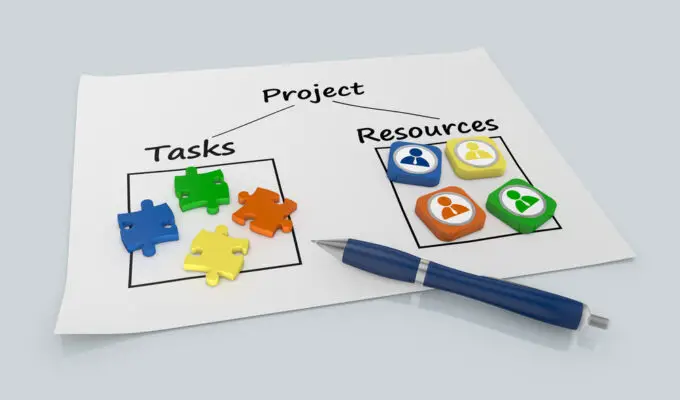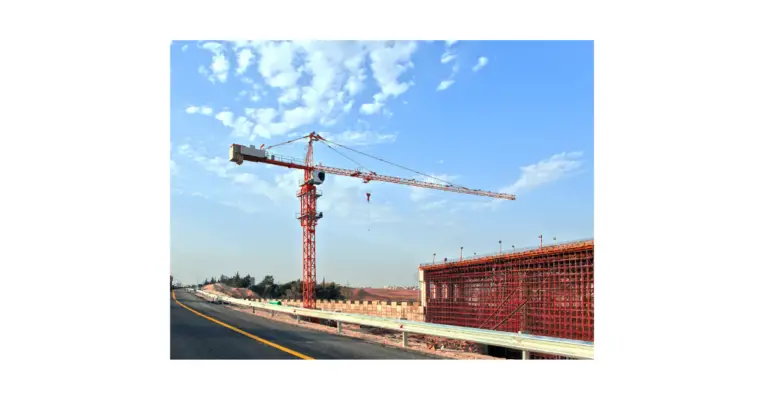A crisis can strike anytime and often when we least expect it. In these moments, it is essential to have a crisis plan and someone in charge who can direct the team and keep everyone on track. In crisis management, the project manager is vital in keeping the project on track and ensuring everyone knows what to do.
The project manager leads the team and keeps everyone focused on the task. There are many moving parts in a crisis, and it can be easy to get sidetracked. The project manager needs to be able to keep their cool and think clearly so that they can make decisions quickly and effectively. They also need to communicate clearly so everyone is on the same page.
The project manager is responsible for developing the crisis management plan. This plan includes strategies for responding to a crisis, who needs to be contacted, and what needs to be done. The plan should be reviewed regularly to be updated as needed.
The project manager is also responsible for coordinating with different teams and individuals during a crisis. This includes updating everyone on the latest information and ensuring that tasks are assigned and completed promptly. The project manager needs to adapt quickly as the situation changes to remain effective.
A project manager is a professional in the field of project management. Project managers are responsible for planning, executing, and closing any project, typically relating to construction. A crisis, by definition, is an unstable or critical time or state of affairs. In business, a crisis can strike at any time and may be caused by any number of things, including weather, system failures, accidents, or natural disasters.
Let’s look at the project manager’s role in crisis management.
Planning
The project manager’s first and most important role in crisis management is planning. Planning is essential to any crisis because it allows all parties involved to be on the same page and aware of what needs to be done.
A good plan will consider all possible scenarios and outcomes so that everyone knows what to do in any given situation. The project manager should work closely with the other crisis management team members to develop a comprehensive plan covering all bases.
Executing
Once the plan has been developed, it is up to the project manager to ensure it is executed properly. This means keeping all team members updated on their tasks and ensuring that everyone follows the plan as it was intended.
The project manager is also responsible for monitoring the situation closely and ensuring that things are going as planned. If there are any deviations from the plan, it is up to the project manager to make sure that they are corrected as quickly as possible.
Closing Out
After the crisis has been averted, it is up to the project manager to close the project properly. This includes debriefing all team members on their performance and compiling a report on the entire experience. This report should include what went well and what could be improved for future reference.

Crisis Management and Project Management
Nothing screams fear into project managers’ hearts as soon as they are told their work deadline was missed, or the project was over budget and that all their team members were sick from flu. It’s hyperbolic, but in Murphy’s law, anything that goes wrong goes wrong and strange things happen in the past that has not been seen before. Before you were formally appointed Project Management, there was probably a project manager in your organization who had experienced a project crisis. If it’s not, be blessed.
Crisis management can also be used to manage projects. A team must know the best way to deal with an urgent issue in a business situation. As a team member or employee at the time of the project, you probably noticed how a client wanted to terminate the project due to their poor performance. The most commonly encountered crisis has various forms and dimensions and has financial or technological origins.
Why is Project Management so important during a Crisis?
The majority of crisis problems are often, in fact, resource problems. However, we can see this problem: Too many workers seek less-than-ideal jobs. You need to add more projects or decrease your employees to solve them.
In these circumstances, it’s vital that we manage projects properly in times of crisis. Most companies will likely have important work that needs to be continued throughout the economic downturn. Without a properly managed project manager, making decisions that will support your decision-making processes is impossible.
A crisis can be caused by natural disasters, terrorist attacks, financial scandals, or other events. The ability to effectively manage a crisis can mean the difference between making it through the event unscathed and suffering serious damage to the organization’s reputation and bottom line.
Project management is a proven discipline that can help organizations to plan for and respond to crises effectively. In today’s rapidly-changing world, having a strong project management framework in place is essential for any organization that wants to be prepared for whatever crisis may come its way.
What is the Role of Manager in Crisis Management?
A manager’s role in crisis management is to maintain organizational stability and keep operations running smoothly during a crisis. This may involve making difficult decisions, such as downsizing or restructuring the organization.
Additionally, the manager must communicate effectively with all stakeholders, including employees, shareholders, and customers. In some cases, the manager may also be responsible for leading the organization through the crisis and into a period of recovery.
What are the 4 main roles of a project manager?
The four main roles of a project manager are to plan, organize, monitor, and control the project. Planning involves setting the project’s overall goals and objectives and defining how these will be achieved.
Organizing involves creating a structure for the project team and assigning tasks and responsibilities. Monitoring involves tracking progress against the project plan and taking corrective action when necessary. Finally, control involves ensuring that changes to the project are properly authorized and risks are assessed and managed.

Project managers & PMO – two key players in project management during a crisis
During a crisis, project managers play a key role in ensuring that projects stay on track. They communicate with stakeholders, set goals, and keep workers motivated. Additionally, project managers must be able to adapt their plans as the situation changes. Management staff and senior management are team leaders when a crisis strikes.
The Project Management Office (PMO) is also important during a crisis. The PMO is responsible for coordinating resources and providing support to project managers. Additionally, the PMO can help to identify risks and develop contingency plans. Together, the project manager and PMO are essential players in ensuring that projects are completed successfully during a crisis.
Project manager responsibility has shifted too. Gone are when an engineer could only judge whether the project was delivered on budget.
Especially when there’s a crisis. Project management, in general, has grown increasingly collaborative. The simple task of managing projects isn’t enough; the teams should also have efficient leadership. Agile techniques include involving the team’s project team more deeply.
Manage communications
If the communication channel is lacking in your company, it is impossible for the team or the stakeholders to communicate effectively between them. The next time a crisis comes, the manager cannot provide confidence in putting things in the right place. Completed projects need such a correction of feasible ideas for resource allocation.
It’s likely there is no inspiration from these stakeholders. There won’t be collaboration. Hence there will be no success. Therefore, communication is crucial for implementing a project. Communication management plans often aim at addressing a problem. Good communication channels must be deployed during a crisis.
Working from home – a new experience for many people
Some multinationals allow staff to work remotely. The challenges faced during Covid 19 pandemic were significant. Project managers also may have to work remotely while completing a project. It helps you manage meetings while you work remotely. But the situation also offers another challenge — a desire for better collaboration within a project team and across a company.
There are a few key things that project managers can do to set themselves up for success when working from home. First, it is important to create a dedicated workspace. This can help minimize distractions and ensure you have the supplies you need to do your job. Second, it is important to establish boundaries with family and friends.
Finally, make sure to take breaks and stay connected with your team. Working from home can be isolating, so it is important to take time to socialize and stay in touch with your co-workers.
Immediately respond to early warning signs
Before anything negative goes on. You must find these signs immediately to prevent the occurrence. When you don’t get enough financial resources for your project, it will result in your project being delayed, and therefore project work may deteriorate or even stop.
You should identify warning signs of budget creep. If you see a warning sign, you must take the necessary preventative measures and reduce the negative impact.

Steps to Crisis Management in Projects
The primary method for crisis management is to develop preventative measures before a project begins. For successful crisis management, you need to be the crisis control manager that tries to avoid the negative consequences that may be experienced.
Once a situation has been prevented. It is essential that you identify a root cause and fix it to develop detailed contingency plans. For effective crisis management project teams need to provide a perfect project environment to improve project performance.
Stop the crisis from spreading.
The first step in crisis management is stopping a spreading threat. When crises arise, your team will not prevent them. If you measure in realistic terms, you can control them. Then to avoid an epidemic.
Keep cool during a crisis
Project managers must keep a cool head in a crisis. Team members will look at you and help with the rest. If your colleagues see your anxiety, their motivation falls. When you lose control in a crisis, so do your teammates. If you sound optimistic, your teams will try harder to succeed in dealing with the situation.
Develop plans to handle crises
A crisis management team is needed who develops a plan of action if there are any emergency circumstances. The director or manager may create these teams. Ensure team members understand risks as well as possible scenarios. You need to have a contingency action plan for a few crises.
Repair the damage and Identify the Root Cause
When you stop the recurring crisis, begin to fix what was damaged. Eventually, it’s necessary to identify what caused that crisis so it won’t continue. At this stage, a brainstorming session can help identify the root causes.
Conclusion
The role of the project manager in crisis management is vital. They lead the team, keep everyone focused, and promptly complete tasks. To be effective, they need to think clearly and communicate effectively.
As you can see, the role of the project manager in crisis management is vital to averting any potential disaster. Project managers are responsible for planning, executing, and closing out crisis management situations. They work closely with other team members to ensure everyone is on the same page and knows what needs to be done. If you find yourself in a crisis, have a qualified project manager on your team.

Chris Ekai is a Risk Management expert with over 10 years of experience in the field. He has a Master’s(MSc) degree in Risk Management from University of Portsmouth and is a CPA and Finance professional. He currently works as a Content Manager at Risk Publishing, writing about Enterprise Risk Management, Business Continuity Management and Project Management.


